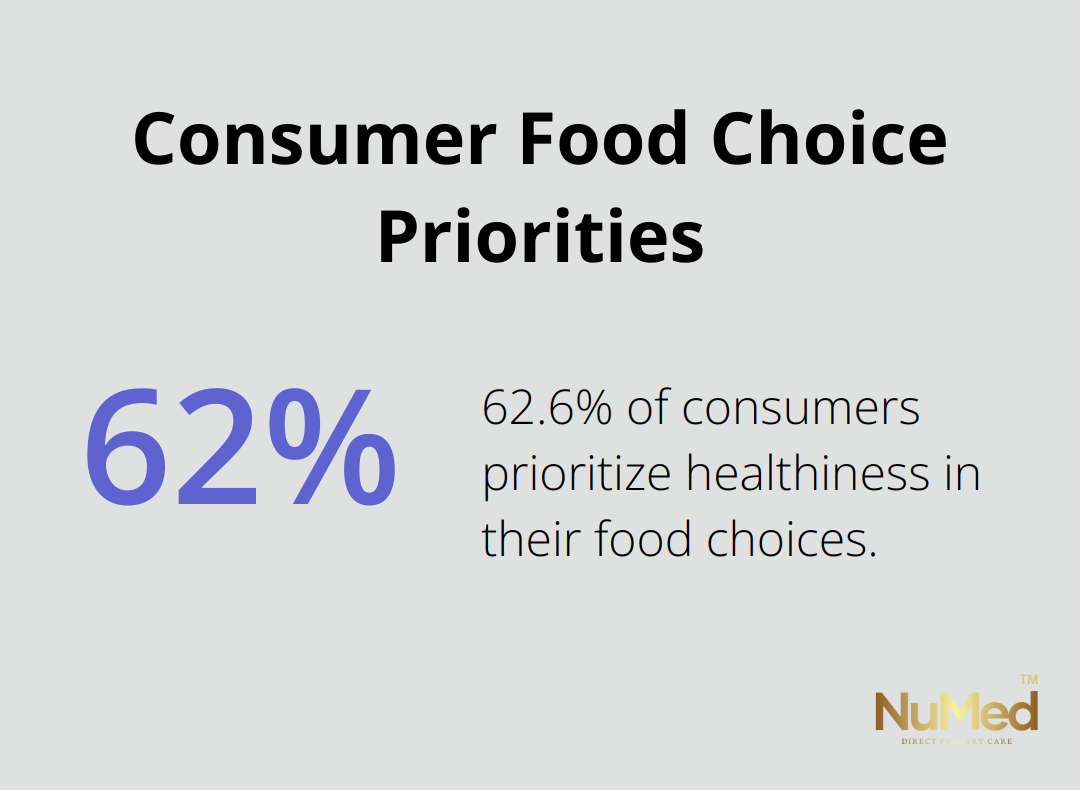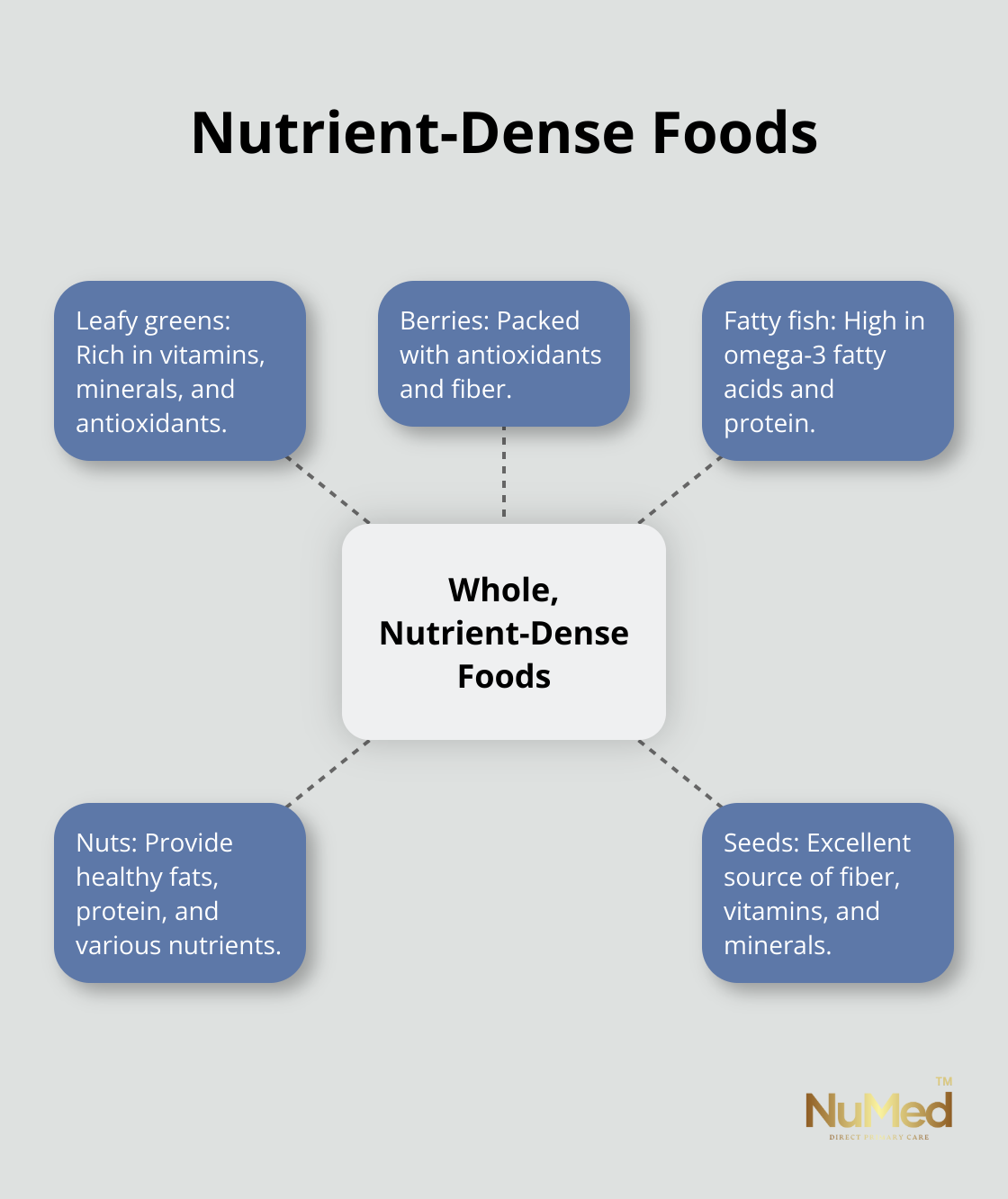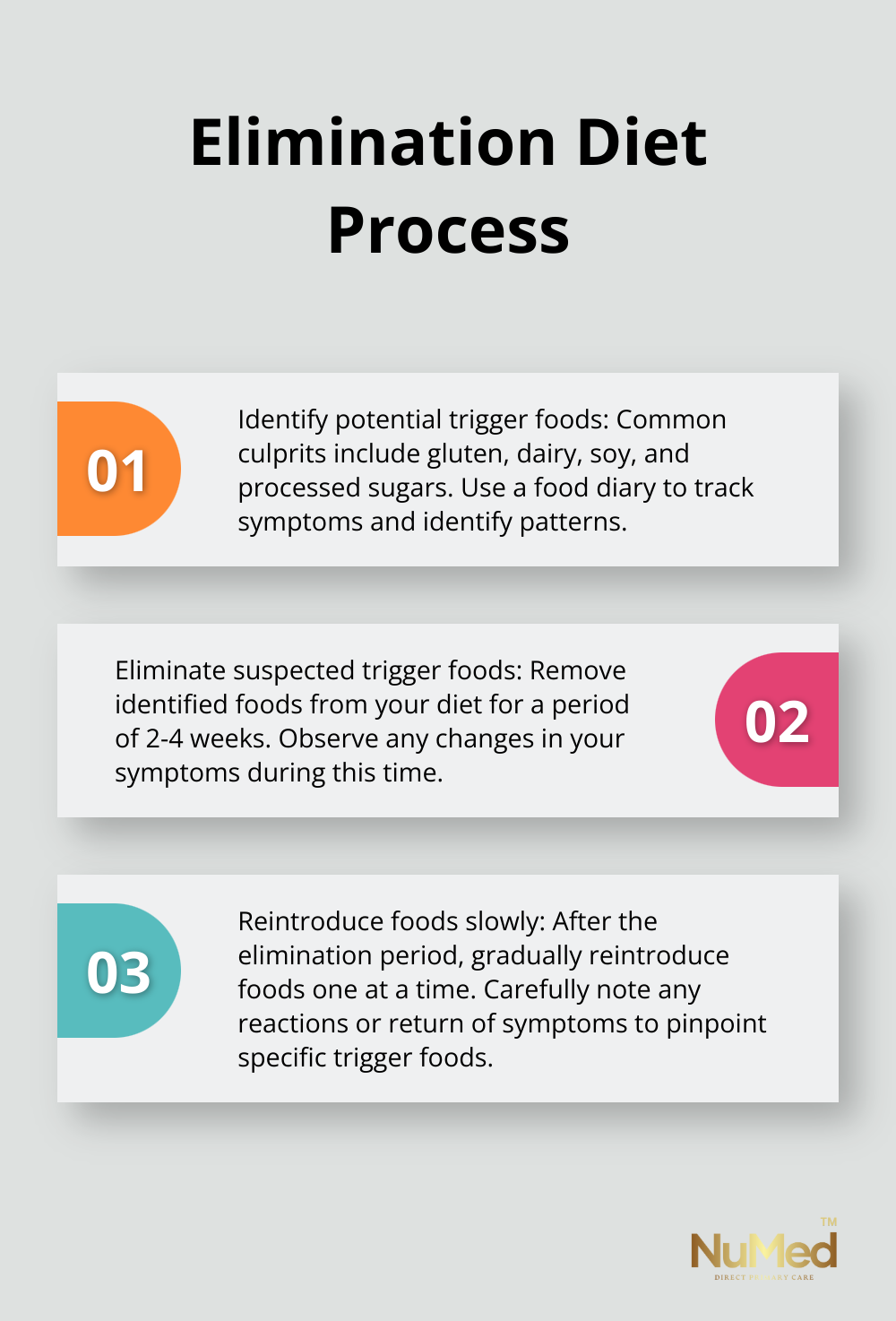At NuMed DPC, we believe that food is more than just fuel for our bodies. Functional nutrition takes this concept a step further, viewing food as medicine and a powerful tool for optimizing health.
This approach focuses on personalized nutrition plans tailored to individual needs, addressing the root causes of health issues through diet. In this post, we’ll explore how you can embrace functional nutrition to improve your overall well-being and vitality.
What Is Functional Nutrition?
A Personalized Approach to Health
Functional nutrition transcends traditional calorie counting and generic dietary guidelines. This method recognizes the uniqueness of each person’s nutritional needs, which are influenced by genetics, lifestyle, and environmental exposures.
Food as a Powerful Healing Tool
Functional nutrition views food as a potent instrument for healing and health optimization. It emphasizes whole, nutrient-dense foods to address specific health concerns and support overall well-being. Research from the Harvard T.H. Chan School of Public Health demonstrates that a diet rich in fruits, vegetables, and whole grains can significantly reduce the risk of chronic diseases (such as heart disease and type 2 diabetes).
Digging Deeper Than Conventional Approaches
Unlike conventional nutrition approaches that often focus on short-term weight loss or general dietary recommendations, functional nutrition identifies and addresses the root causes of health issues through targeted dietary interventions. This might involve the elimination of trigger foods, the incorporation of specific nutrients to support bodily functions, or the use of food to modulate inflammation.
The Power of Personalization
A hallmark of functional nutrition is its emphasis on personalization. A 2023 survey by Today’s Dietitian and Pollock Communications revealed that 62.6% of consumers prioritize healthiness in their food choices. Functional nutrition takes this a step further by tailoring dietary recommendations to an individual’s unique biochemistry, health history, and goals.

The Gut-Brain Connection
Functional nutrition excels in addressing the gut-brain connection. Emerging research shows that the health of our gut microbiome can significantly impact mental and cognitive health. A focus on foods that support a diverse and healthy gut microbiome can potentially improve not just digestive health, but also mood, cognitive function, and overall well-being.
As we move forward, we’ll explore the key components that make functional nutrition a powerful approach to achieving optimal health. You’ll discover how this method can transform your relationship with food and pave the way for lasting wellness.
How Functional Nutrition Works
Personalized Nutrition Plans
Functional nutrition operates on the principle that food is more than just calories-it’s information for our bodies. This approach tailors dietary recommendations to each individual’s unique biochemistry, health history, and goals. A recent study demonstrated that personalizing food choice advice, based on a combination of individual characteristics, can be more effective in achieving health goals. This personalization takes into account factors such as genetic predispositions, gut microbiome composition, and lifestyle habits.
Nutrient-Dense Foods
Functional nutrition emphasizes whole, nutrient-dense foods. Recent research has demonstrated the role of micronutrient-dense animal-source foods and plant-source foods in meeting essential nutrient needs to support health. These foods include leafy greens, berries, fatty fish, nuts, and seeds. They provide essential vitamins, minerals, and phytonutrients that support optimal bodily functions.

Root Cause Analysis
Unlike conventional approaches that often treat symptoms, functional nutrition aims to identify and address the root causes of health issues. For example, instead of simply recommending an antacid for acid reflux, a functional nutrition practitioner might investigate potential food sensitivities, stress levels, or gut microbiome imbalances that could contribute to the problem.
Gut Health and Microbiome Balance
The gut microbiome plays a crucial role in overall health, influencing everything from digestion to immune function and even mental health. Functional nutrition prioritizes foods that support a healthy gut microbiome, such as fermented foods, prebiotic-rich vegetables, and diverse plant fibers.
Practical Implementation
Implementing functional nutrition principles can transform your health. It’s not about following a rigid diet plan, but rather understanding your body’s unique needs and nourishing it accordingly. Try to make small, consistent changes (such as incorporating more whole foods or experimenting with fermented foods) to see significant improvements in your overall well-being.
As we explore the practical aspects of functional nutrition in the next section, you’ll discover how to apply these principles to your daily life and take control of your health journey.
Putting Functional Nutrition into Practice
Track Your Food and Symptoms
A food and symptom diary serves as a powerful tool in functional nutrition. Record your meals, snacks, and any symptoms you experience throughout the day. Pay attention to energy levels, digestive issues, mood changes, and sleep quality. After a few weeks, you might notice correlations between certain foods and specific symptoms. Use a simple notebook or a smartphone app to log this information.
Identify and Eliminate Trigger Foods
Analyze your food diary for potential trigger foods. Common culprits include gluten, dairy, soy, and processed sugars. If you suspect a food causes issues, eliminate it for 2-4 weeks and observe any changes in your symptoms. Reintroduce the food slowly and note any reactions. This process (known as an elimination diet) provides valuable insights into your body’s unique responses to different foods.

Incorporate Healing Foods
Focus on adding nutrient-dense, healing foods to your diet. Prioritize a variety of colorful fruits and vegetables, which provide essential vitamins, minerals, and antioxidants. Include fermented foods like kimchi, sauerkraut, or kefir to support gut health. Omega-3-rich foods such as fatty fish, chia seeds, and walnuts can help reduce inflammation.
Consider Supplements
Supplements can play a role in functional nutrition. Probiotics, vitamin D, or magnesium might benefit your specific health needs. However, it’s important to work with a qualified practitioner to determine which supplements are right for you. At NuMed DPC, we offer personalized guidance on supplement use as part of our comprehensive approach to functional nutrition.
Work with a Functional Nutrition Practitioner
A qualified functional nutrition practitioner provides personalized support and expertise. They can help you interpret your food diary, guide you through elimination diets, and create a tailored plan that addresses your unique health needs. This personalized approach (a hallmark of functional nutrition) can lead to more effective and sustainable health improvements.
Final Thoughts
Functional nutrition empowers individuals to take control of their health through personalized dietary interventions. This approach addresses the root causes of health issues and leads to significant improvements in overall well-being. We at NuMed DPC believe in the power of functional nutrition to transform lives.
Small, manageable steps can kickstart your functional nutrition journey. You can start by keeping a food diary, trying new nutrient-dense foods, or gradually eliminating potential trigger foods. These changes will add up to substantial health benefits over time.
NuMed DPC commits to guiding you through your functional nutrition journey. Our experienced practitioners provide personalized support to help you achieve your health goals. Experience the benefits of functional nutrition with NuMed DPC and discover how it can transform your well-being.
















